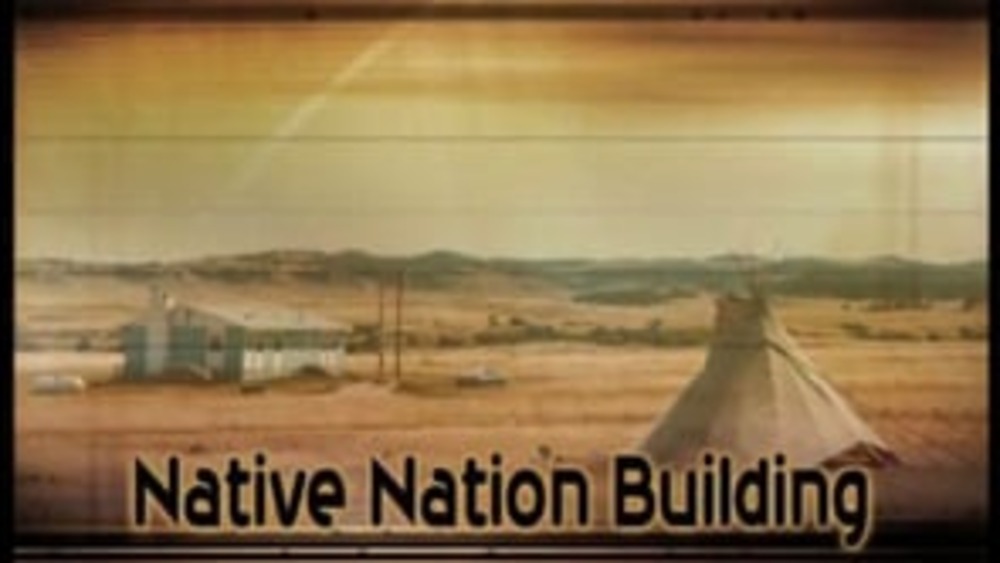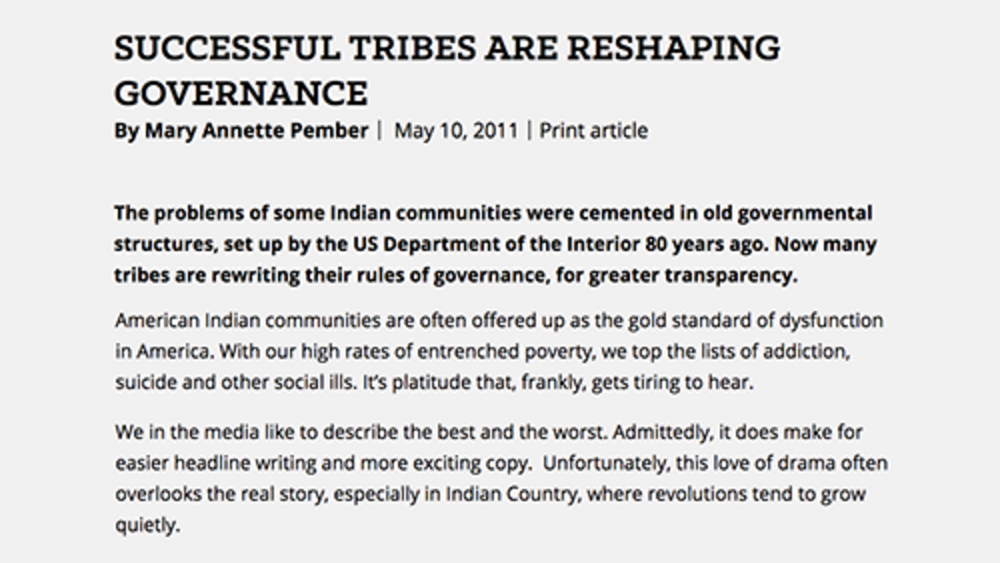Native leaders offer their perspectives on why some Native nations have proven more successful than others in achieving their economic and community development goals.
Additional Information
Barrett, John "Rocky". Native Nations Institute for Leadership, Management, and Policy, University of Arizona. Tucson, Arizona. March 28, 2009. Interview.
Ninham-Hoeft, Patricia. Native Nations Institute for Leadership, Management, and Policy, University of Arizona. Tucson, Arizona. March 26, 2009. Interview.
Nuvamsa, Ben. Native Nations Institute for Leadership, Management, and Policy, University of Arizona. Tucson, Arizona. March 25, 2010. Interview.
Pierre, Sophie. Native Nations Institute for Leadership, Management, and Policy, University of Arizona. Phoenix, Arizona. October 21, 2008. Interview.
Sampsel, Roy. Native Nations Institute for Leadership, Management, and Policy, University of Arizona. August 31, 2010. Tucson, Arizona. Interview.
Transcript
Ben Nuvamsa:
"We have this long history and teachings and so on. And if we hang onto those beliefs, core values, and so on, that really is the foundation from which we can build. So in successful nations, tribal nations, we're able to do that; to define who they are, understanding who they are, but also have a plan. A plan that's looking down, some people say seven generations. We don't just plan for ourselves, for tomorrow or next five years but long-term. We have to have a global vision of where we want to be. And if we can define that, then we can reduce that down to something that's gonna be achievable. And I think that economic development, economic success, goes back to having a good strategic direction where you want to be. The same way with us as communities and so on and to be able to build our healthy communities so that...it's the same kind of thing. What do we want to achieve? Who are we? And at Hopi, for example, it's just going back to the values of who we are as Hopi and Tewa people and defining our communities that way...and then setting our governance accordingly."
Patricia Ninham-Hoeft:
"I think it starts with short-term and long-term vision. That those tribes that are successful have a vision for what they think they're community should look like a hundred, two hundred years from today. And they've taken the time to make steps backwards to map out how to achieve that vision and then they start working on it together. And that they explain that vision to the entire community so that everyone is on the same page and they can help. And I think part of getting to that place of success means that we, as individuals in our community, have to change our mindset that we have to stop being the victim. We have to stop blaming our history for why we're not successful and we have to start living and defining our future as it is today. So values and ideas that worked for us in the past, they probably still work for us today, but it's the way we express them, the form that we use to live our daily lives has changed and we have to get with that. And when we do that when we start defining and taking charge of our own future then we'll start realizing our vision."
John "Rocky" Barrett:
"Common attributes, I think, of successful nation building are stable governments, expanded representation, lawful behavior, and something that lends itself to consistent performance. All those go back to constitutional forms but they also... those are really accomplished by diminishing nepotism which is, you know, since everyone is related in an Indian tribe, that is an issue. Financial accountability is a huge one; separation of powers seems to be a common attribute; and most importantly to make all that fall within a cultural relevance that means something to the culture of the tribe and the people."
Sophie Pierre:
"There's lots of reasons why...I think that for our case, the fact that we have made it a priority, that we listen to our people, that we, and that we ensure that we're engaging our people, our Ktunaxa people, with every aspect as we move forward I think that that's really what has really helped us to be successful."
Roy Sampsel:
"Where you have a strong sense of history, a strong cultural sense, it allows for that to be the foundational building blocks on which nations can then advance as they begin to take on either the political, social or economic needs of their tribes are. [...] A piece of it, I think, is individual history that the tribes have gone through and whether or not they have been able to sustain leadership continuity over time. I don't want to over emphasize that because it doesn't mean that young, new leaders don't emerge and make tremendous leaders. But if there is a cycle in which this isn't able to be built upon, and if everything has to start new, then what you end up is the lack of the foundational building blocks that allow for success to take place over time."


